8. Batman: Mask of the Phantasm (1993, Eric Radomski/Bruce Timm)
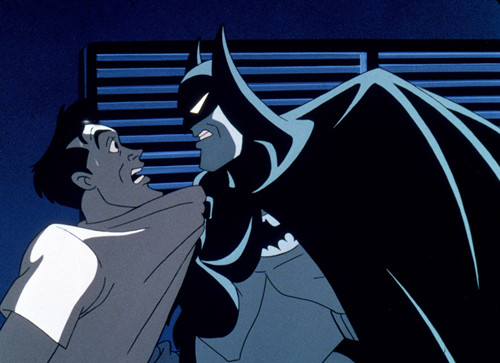
Originally intended as a direct-to-video release based on the hugely successful and critically acclaimed “Batman: The Animated Series”, “Mask of the Phantasm” was quickly rushed into theaters by the studio and received little advertising. Needless to say, it bombed spectacularly. Today, it’s considered by many Batman fans to be the best portrayal of the character.
In this film, a mysterious vigilante has been murdering Gotham’s most notorious crime bosses. While investigating the case, Batman (Kevin Conroy, the quintessential Batman) is wrongly accused of committing them. The problem is exasperated when a powerful crime boss (Abe Vigoda) turns to the Joker (a wonderfully maniacal Mark Hamill) for protection.
“Mask of the Phantasm” is quite possibly the best Batman film. It brings more depth to Bruce Wayne than any other adaptation; this allows us to view Batman in a more humane way, but it’s also a damn fine neo-noir with brilliant dialogue and a gripping, suspenseful storyline. A must-see for any Batman fan.
9. Pom Poko (1994, Isao Takahata)
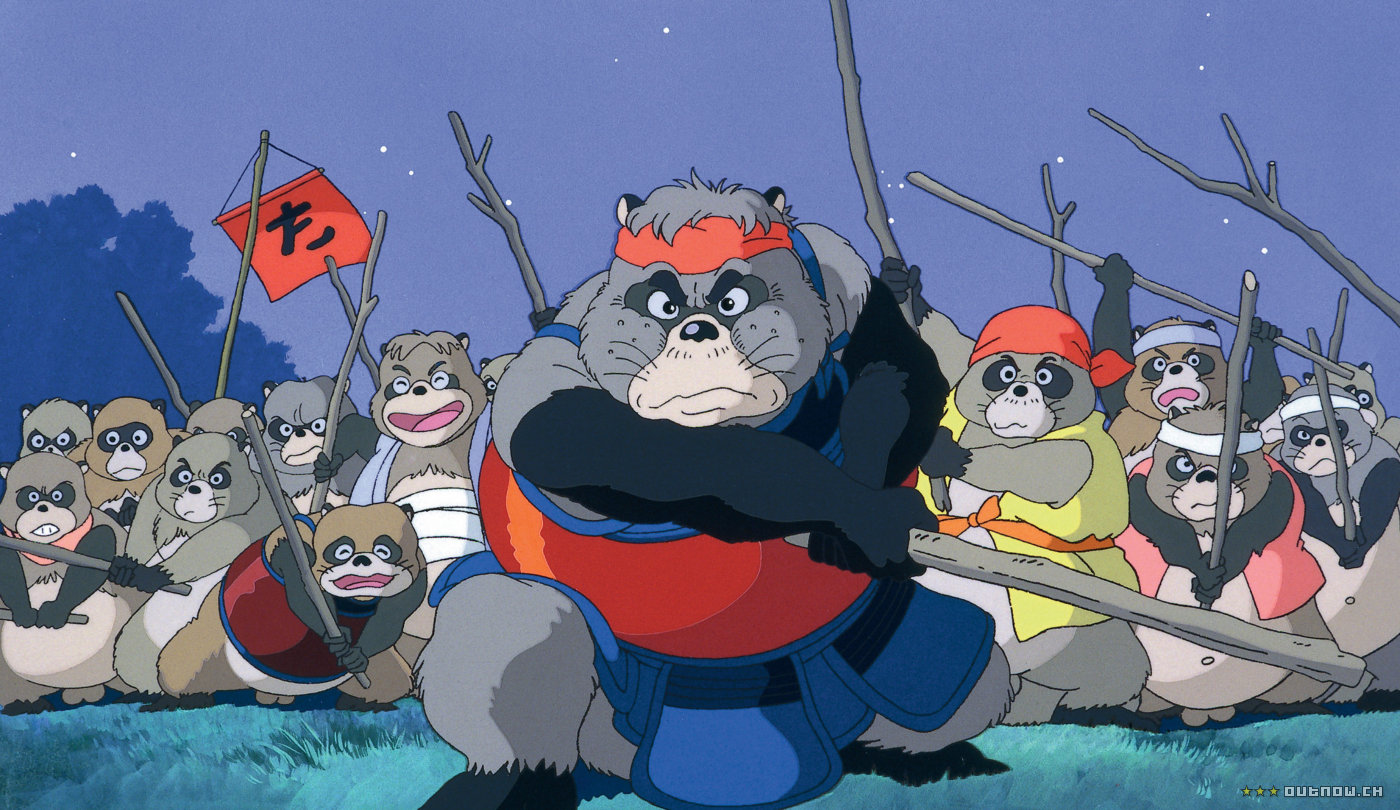
Studio Ghibli’s “Pom Poko” focuses on a group of tanuki (Japanese raccoon dogs) who are threatened by a suburban development project. When their resources begin to diminish, they begin to resist the development by sabotaging the industry and frightening humans. In the film, the tanuki are a mischievous and fun-loving species with an ability to shape-shift, a reference to a popular Japanese folktale.
“Pom Poko” is delightfully weird. The tanuki’s shape-shifting allows for some hilarious sight gags throughout the film, each as strange as the last.
Though it can be a little heavy-handed, its environmental message is effective and thought-provoking. Its statement about the relationship between man and nature is intelligent and universal. It’s a great film that will appeal to both adults and children.
10. Whisper of the Heart (1995, Yoshifumi Kondō)
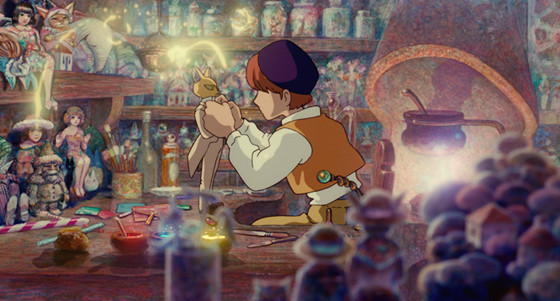
Based on a screenplay written by Hayao Miyazaki and directed by prolific Ghibli animator Yoshifumi Kondō (his only film before his death in 1998), “Whisper of the Heart” is the story of two teenagers, Shizuku and Seiji.
Shizuku is a bookish girl who lives in an apartment with her parents and her elder sister. Seiji spends all of his free time in his grandfather’s antique shop practicing violin, determined to become a great violinist. Though they initially annoy each other, their relationship develops as they realize how much they have in common.
Don’t be turned away by the premise – it’s much more than your typical teen romance movie. It contains none of the melodrama or sappy sentiment often found in them; this film resists cliches and portrays our protagonists in an honest and realistic way.
“Whisper of the Heart” is a beautifully simple love story told with plenty of heart. Essential viewing for any Ghibli fan or those tired of traditional romance films.
11. Memories (1995, Kōji Morimoto/Tensai Okamura/Katsuhiro Otomo)
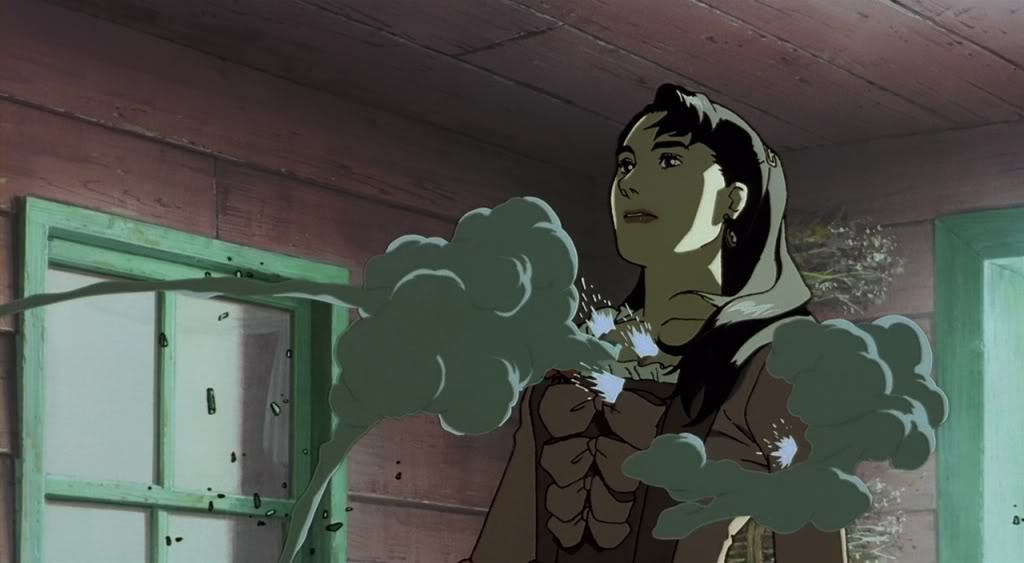
An anthology film based on the short stories of acclaimed filmmaker and manga artist Katsuhiro Otomo, “Memories” consists of three segments each produced by a different team.
The first is “Magnetic Rose”, directed by Kōji Morimoto with a screenplay written by the great Satoshi Kon, focusing on a space crew’s investigation of a seemingly abandoned spaceship; however, things go awry when they begin to experience strange visions.
The second is “Stink Bomb”, directed by Tensai Okamura, about a man who inadvertently transforms himself into a weapon of mass destruction. The third and final segment is “Cannon Fodder”, directed by Otomo himself; it follows the lives of the residents of a city that is forever at war, for reasons unknown to them.
Quality differs between each segment. “Magnetic Rose” is easily the best of the bunch. It’s a moving examination of loss with an excellent screenplay from Satoshi Kon. Some viewers may be put off by “Stink Bomb”, as it’s a dark comedy in stark contrast to the preceding segment, but it’s great in it’s own right, using its dark sense of humor and pretty visuals to its advantage.
“Cannon Fodder” is easily the worst. Its premise is interesting, but it’s never used to its full potential. Its one mediocre segment is distracting, but its other segments are enough to make “Memories” an enthralling experience.
12. Millennium Actress (2001, Satoshi Kon)
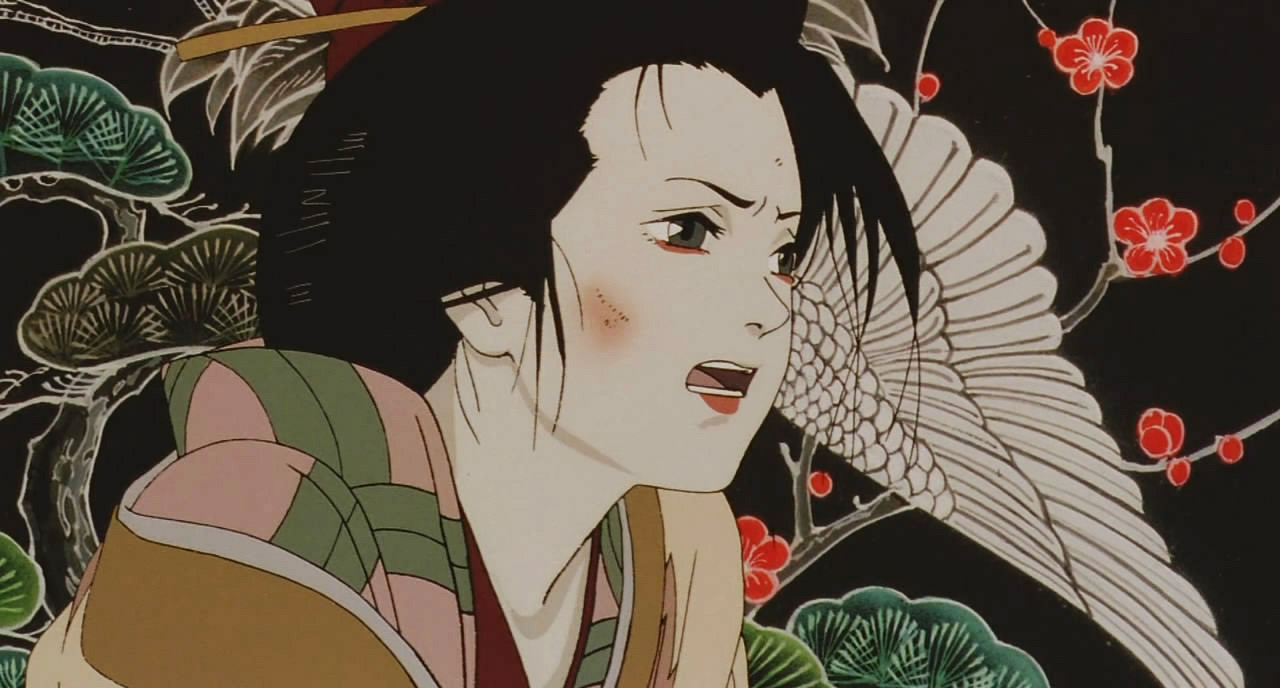
Before his untimely death in 2010, Satoshi Kon established himself as one of the greatest anime filmmakers of all time. He only had four films under his belt, but each one was a masterpiece.
His best was “Millennium Actress”, a journey into the life and career of Chiyoko Fujiwara, a once-famous actress who spends her elder years as a recluse (seemingly based on Japanese screen legend Setsuko Hara). When her old studio shuts down, she agrees to give an interview to two documentary filmmakers. Chiyoko reminisces about her childhood, career, and the history of Japanese cinema, as past and present begin to intertwine when the filmmakers become part of her story.
Kon often blended reality and fantasy in his films to disorient the audience, but in “Millennium Actress” the effect is much more positive; he uses it to create a beautiful rumination on human memory and a history lesson on Japanese cinema. Here, Kon abandoned his usual dark tone and created a heartwarming and touching story unlike any other. The film is visually spectacular as well, containing Kon’s superb attention to detail and his beautiful backgrounds.
13. The Triplets of Belleville (2003, Sylvain Chomet)
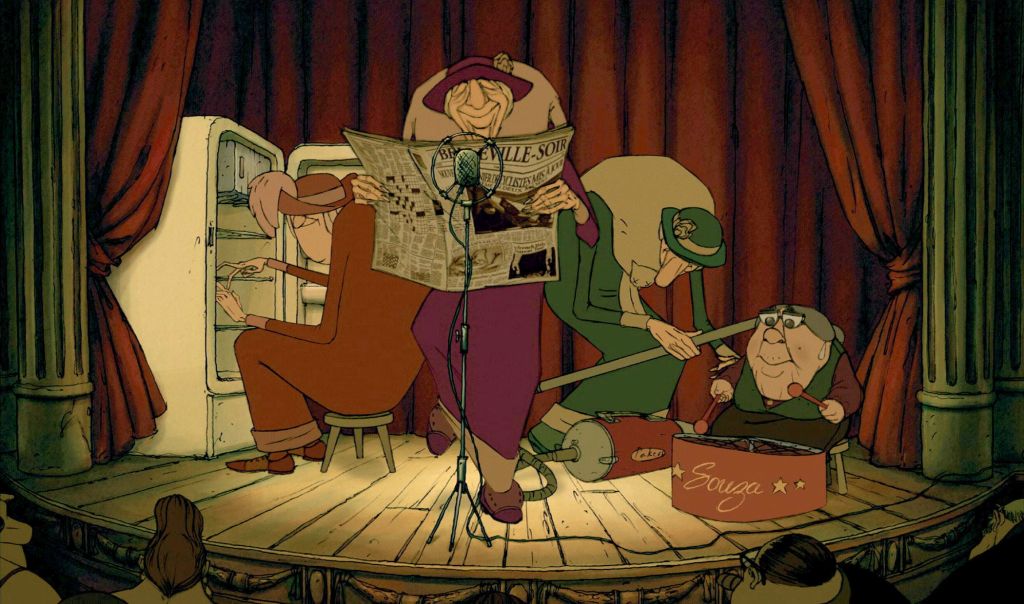
An international production between studios in France, Canada and the United Kingdom, “The Triplets of Belleville” was the feature film debut of established comic artist Sylvain Chomet.
The film contains very little dialogue and tells the story of an elderly woman who sets off on a quest to save her son, a famous cyclist who has been abducted by the mafia. Along the way she meets the titular Triplets of Belleville, a once-famous vaudeville act, who accompany her on her journey.
The film is uniquely animated, eschewing the conventional pretty look of many animated films, instead going for a more realistic, detailed style. The story is very original and brings out the movie’s twisted sense of humor. A bizarre but charming film that no fan of animation should miss.
14. Arthur Christmas (2011, Sarah Smith)

From Aardman Animations, “Arthur Christmas” tells the story of Arthur Claus (James McAvoy), the accident-prone and enthusiastic son of Santa Claus (a perfectly cast Jim Broadbent). One Christmas, after making his yearly rounds, Arthur realizes that Santa has failed to deliver a present to one little girl. Alongside Santa’s grouchy father (Bill Nighy), Arthur goes on a mission to deliver the gift to the girl, but the trip proves to be much more arduous than they expected when the sleigh breaks down.
The plot is nothing new, but “Arthur Christmas” takes a very creative spin on its familiar plot. The film states that ‘Santa’ is a title that is passed down through generations, a creative concept rarely seen in Christmas movies. It’s funny, quirky and original, something to be expected from Aardman, but what elevates it to greater heights is its heartwarming story and message. It perfectly captures the magic of the holidays in a way that will resonate with both adults and children.
“Arthur Christmas” received critical acclaim, but only did modestly well at the box office. A few years after its release, it’s now considered a forgotten gem that is destined to become a holiday classic.
15. Ernest & Celestine (2012, Stéphane Aubier/Vincent Patar/Benjamin Renner)
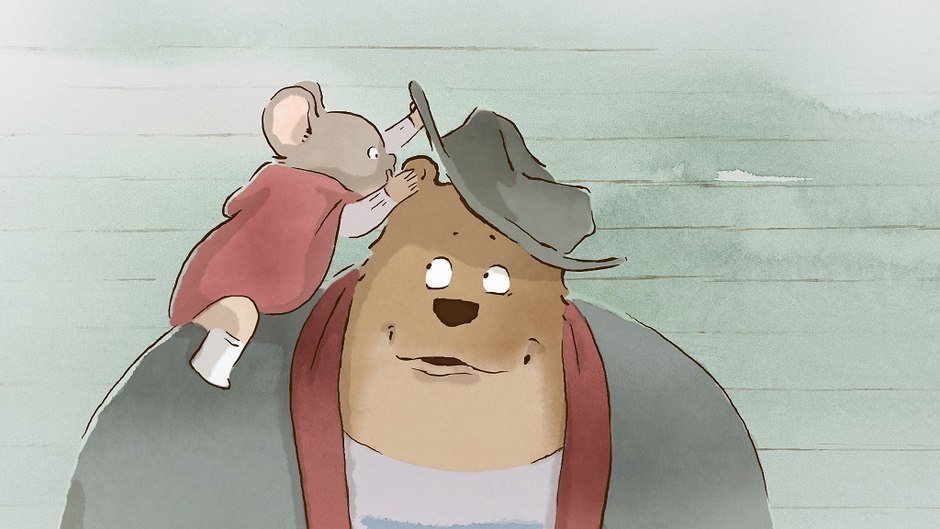
One of the cutest animated films in recent years, “Ernest & Celestine” follows the unlikely friendship between Ernest, a lonely bear, and Celestine, a young mouse. Together they face the scorn of society, as friendships between bears and mice are forbidden.
The animation in the film is particularly beautiful, using a watercolor-like design that makes every frame resemble a picture book. The film is perfectly cast, too. Forest Whitaker voices Ernest with a gruff voice that perfectly fits the character while Mackenzie Foy voices Celestine with an adorable, childish wonder.
“Ernest & Celestine” is a delightful film using a beautiful art style and a powerful message of acceptance. A modern animated classic that’s certain to bring out the kid in you.